DUBAI, Feb 2 (Reuters) - The central banks of UAE andQatar have told lenders to stop financing trade with Iran,bankers said on Thursday, cutting another source of credit for acountry struggling under Western economic sanctions imposed overits nuclear programme.
The Gulf has a long history of trade with Iran, especiallyin Dubai where there is a large Iranian trading community, andGulf banks had been expected to fill a funding gap for theimport of grains left by European lenders banned from financingtrade by EU sanctions."Banks in Dubai were asked by the UAE central bank to stopissuing letters of credit to finance trade with Iran. Before thesanctions, the central bank regularly checked on trading withIran and wanted to know of all dealings between the twocountries," said a Dubai-based banker active in trade financing."Banks can't do this anymore."About 8,000 Iranian traders are registered in Dubai, andre-export trade between Iran and the UAE totalled 19.5 billiondirhams ($5.32 billion) in the first half of 2011, according tothe latest figures from United Arab Emirates' customs authority.Qatar's central bank also recently told banks to stopproviding credit for Iranian trade, according to a seniorDoha-based banker.Iran is struggling under the weight of sanctions. Itscurrency, the rial, has depreciated, there has been a run on itsbanks and inflation is rising, U.S. intelligence chiefs havesaid.The United States imposed the harshest sanctions so far onIran, banning transactions involving Iran's central bank, andthe European Union has banned the import, purchase or transportof Iranian oil, cutting off its main foreign currency earner.
The 27-member bloc also agreed in January to freeze theassets of Iran's central bank to try to persuade Iran to stopits nuclear programme, which the West says is aimed at producingan atomic weapon.Iran denies the charge.The sanctions, which Western powers say are aimed only atthe Iranian administration, may be having unexpectedconsequences.SHIPMENTS STOPIran is heavily dependent on grain imports for animal feed,but some 10 ships have been unable to deliver grain to Iran formore than three weeks after banks refused to process payments,or offer loans to, Iranian buyers.On Thursday, up to five of those vessels may have beendiverted to new destinations, ship tracking data showed.]The United Arab Emirates' central bank ordered financialinstitutions two years ago to freeze Iran-linked accountsbelonging to firms targeted by United Nations sanctions.In Bahrain, which has traditionally had more limited tradeties with Iran, there have been no guidelines."Business with Iranians flourished in the past but Bahrainwas never a trading hub like Dubai," one senior banker said.
"Financing export of goods through the ports wasn't really aprime line of business."Iranian trade with Dubai has flowed for decades, plied bywooden dhows carrying household goods and basic commodities suchas grain, rice and sugar."Historically, grain came to Dubai from South America,mainly Argentina, the USA and EU, mainly France and thenre-exported from Dubai to Iran," said the Dubai-based banker.
"That was very good business for Dubai which acted as atrade hub."(Additional reporting by Regan Doherty in Doha; Writing byAmran Abocar; Editing by Elizabeth Piper,
Richard Mably)
نمایش نتایج: از 1 به 1 از 1
-
- تاریخ عضویت
- 2006/05/19
- محل سکونت
- شهر تهران
- سن
- 39
- نوشته ها
- 2,111
- پسندیده
- 140
- مورد پسند : 131 بار در 103 پست
- نوشته های وبلاگ
- 371
- میزان امتیاز
- 10
 پورتال تاسیسات، اولین محتوای الکترونیکی تاسیسات در ایران
پورتال تاسیسات، اولین محتوای الکترونیکی تاسیسات در ایران
اطلاعات موضوع
کاربرانی که در حال مشاهده این موضوع هستند
در حال حاضر 1 کاربر در حال مشاهده این موضوع است. (0 کاربران و 1 مهمان ها)
موضوعات مشابه
-
Pakistan defies US with gas pipeline to Iran
توسط پارس اتیلن کیش در انجمن پایپینگ، گازرسانی، آتش نشانیپاسخ: 0آخرين نوشته: 2013/05/12, 11:25 -
یازدهمین نمایشگاه بین المللی تأسیسات و سیستم های سرمایشی و گرمایشی iran hvac&r 2012
توسط meybotyhvac در انجمن تازه ها و خواندنی هاپاسخ: 2آخرين نوشته: 2012/10/20, 17:16 -
Iran Dena Machinery Manual Final Draft
توسط hossein-khazaeii در انجمن کتب تخصصی مکانیک و تاسیساتپاسخ: 0آخرين نوشته: 2012/06/10, 18:46 -
Iran starts cloning of American spy drone
توسط harati در انجمن مطالب آزادپاسخ: 0آخرين نوشته: 2012/04/25, 11:12 -
Only in Iran حتما بخونید..!
توسط SAMI در انجمن مطالب آزادپاسخ: 0آخرين نوشته: 2011/11/01, 17:19

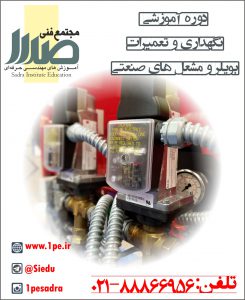
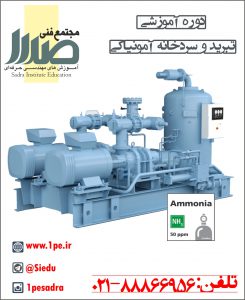
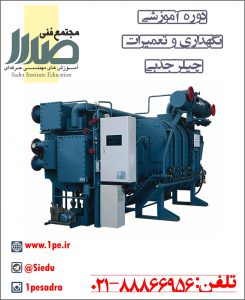




 پاسخ با نقل قول
پاسخ با نقل قول
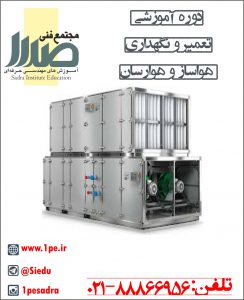
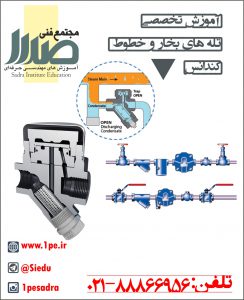



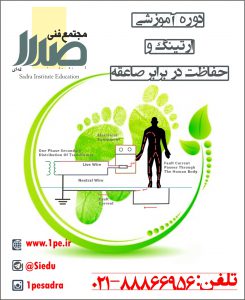
علاقه مندي ها (Bookmarks)